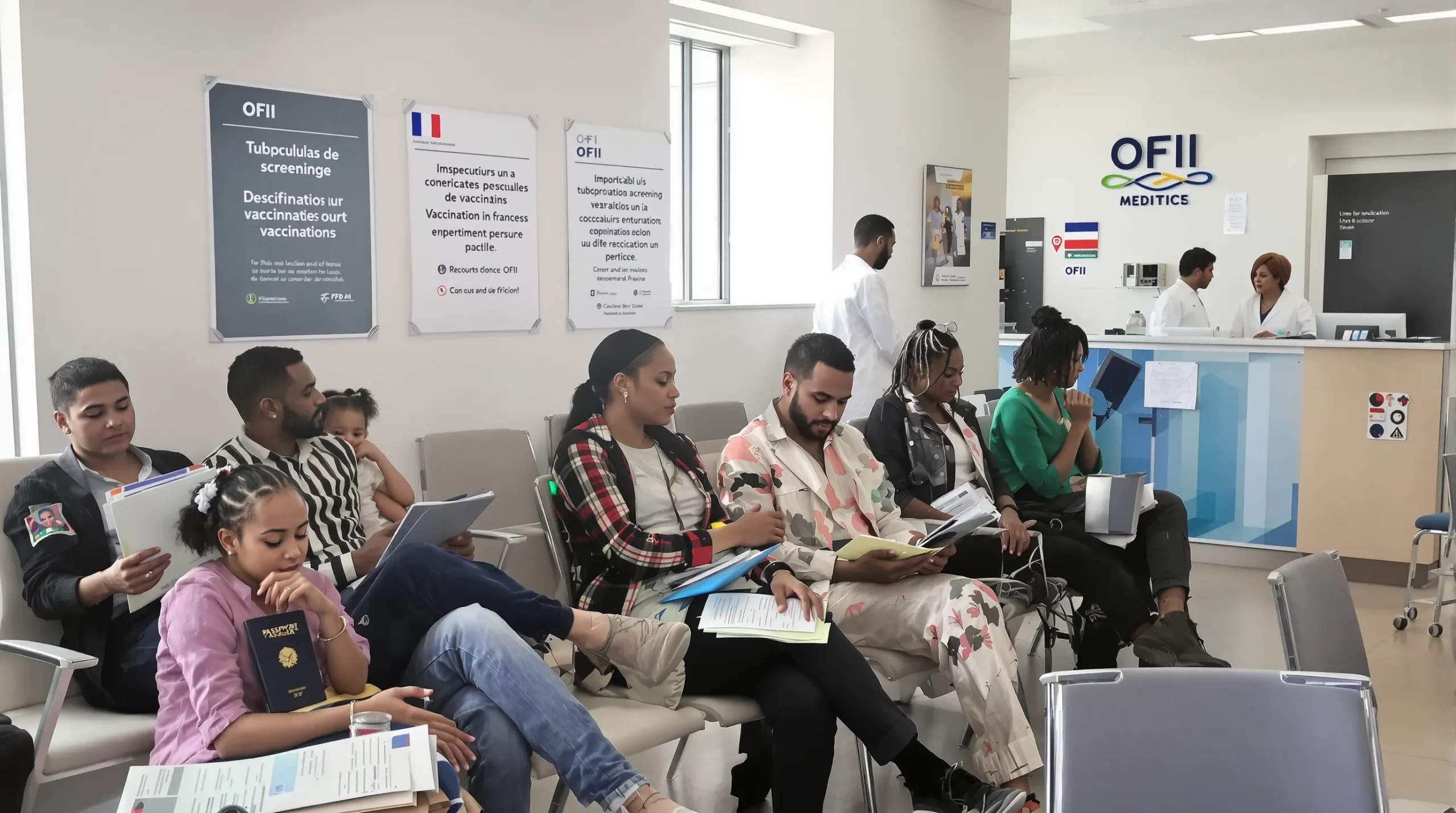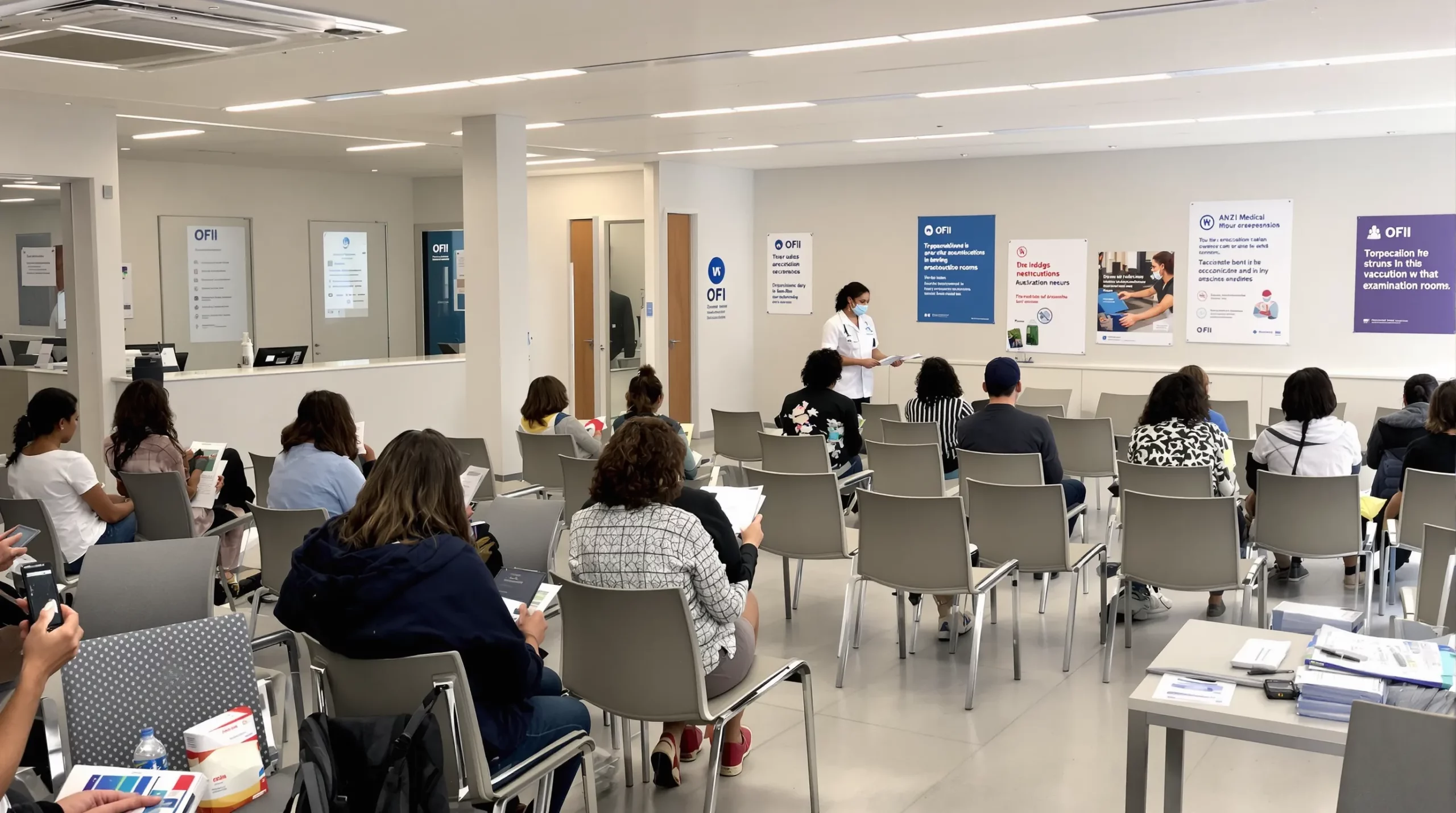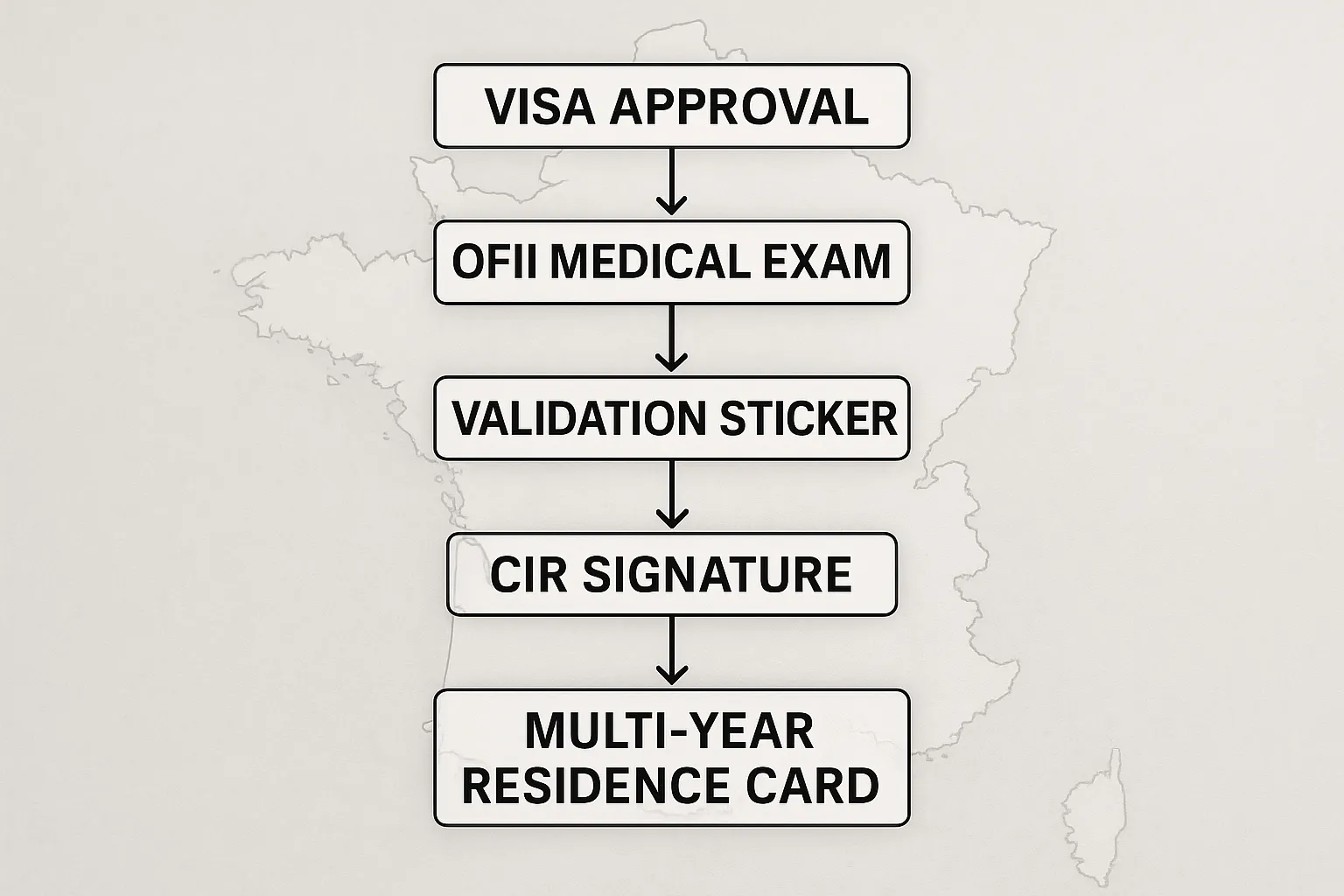Immigration Medical Exam: What to Expect and Documents to Bring

Why France Requires an Immigration Medical Exam
Every year more than 250 000 third-country nationals receive a long-stay visa or residence permit for France (Interior Ministry, 2024). Before their stay is fully validated, most of them must pass a compulsory medical exam organised by the French Office for Immigration and Integration (OFII) or, in rarer situations, by the regional health authority (ARS). The goal is twofold:
- Protect public health by screening for contagious diseases such as tuberculosis.
- Assess individual fitness for residence and, where relevant, work activities.
Skipping or delaying the exam can block visa validation, derail residence-permit renewals and even trigger an Obligation de Quitter le Territoire Français (OQTF). Understanding what to expect—and walking in with the right paperwork—will save you stress and extra prefecture visits.
Who Has to Attend and When
| Situation | Exam Required? | Deadline |
|---|---|---|
| Long-stay visa holders (VLS-TS) aged over 18 | Yes, compulsory | Before the first 3 months elapse OR the date shown on the visa sticker, whichever comes first |
| Spouses of French/EU citizens holding a family-reunification VLS-TS | Yes | Same as above |
| Students with a VLS-TS and stay < 1 year | Yes, but often simplified (no chest X-ray) | 3 months |
| Asylum seekers | Medical screening carried out separately by OFPRA doctors | At invitation |
| Residence-permit renewals (carte de séjour) | Only if prior exam is older than 5 years or if health history triggers a new screening | At prefecture request |
| Undocumented workers applying for regularisation | Case-by-case, generally after prefecture pre-approval | Within 30 days of notice |
Tip: your convocation e-mail or letter will specify the exact location, usually the OFII medical centre linked to your département. If the message never arrives, contact OFII quickly and keep proof of your attempt—our guide on lost prefecture mail explains the steps to protect your file.
How to Prepare: The Essential Document Checklist (2025 Updates)
Bring originals and one clear photocopy unless stated otherwise. OFII may refuse to examine you without a complete file.
- Valid passport with the visa or residence-permit sticker.
- Appointment convocation (printed email or letter).
- Proof of payment of the OFII tax (unless already paid online during visa validation).
- Proof of address dated within the last 3 months (utility bill, lease, hotel attestation, or attestation d’hébergement plus host’s ID).
- Vaccination records (childhood booklet, WHO yellow card, or attestation from a doctor). COVID-19 proof is no longer mandatory but can expedite the interview.
- Prescription glasses or contact lenses and their prescriptions if you wear them.
- Past chest X-rays or TB treatment records if applicable.
- Current medication list or medical certificates for chronic conditions.
- Means of payment (bank card or cheque) for the X-ray centre if your convocation does not include it at OFII. Average fee: €35.
Families: children under 11 are usually exempt from the chest X-ray but must still attend for a height, weight and vaccination review. Bring their livret de famille and birth certificates.
Pro tip: Scan and upload these documents to a cloud folder before the appointment. ImmiFrance clients get an encrypted vault that prefectures accept as digital copies should papers get lost.
Step-by-Step Walk-Through of the Exam Day

- Reception and file verification (10 min)
- Present your passport, convocation and documents.
- Staff check that the visa validation fee has been paid.
- Vision and weight/height test (5 min)
- Standard eye chart; bring corrective lenses.
- Vital signs and questionnaire (10 min)
- Blood pressure, pulse, medical history, vaccination status.
- Chest X-ray at the centre or partner clinic (15 min)
- Pregnant persons can request an ultrasound alternative; a doctor’s pregnancy attestation is required.
- Doctor consultation (10 min)
- Review questionnaire and X-ray.
- Give preventive-care advice and vaccination recommendations.
- Certificate issuance (5 min)
- If all is clear, you receive a Certificat médical OFII which becomes part of your immigration record.
- Abnormal findings lead to referral to a TB clinic or specialist; you will get provisional clearance and a deadline to submit extra tests.
Total average time: 45–60 minutes, longer if the X-ray unit is off-site.
What the Doctors Are Looking For
Contrary to myth, OFII doctors are not judging fitness for employment or pregnancy status. Their legal mandate under Article R.313-8 of the Code de l’Entrée et du Séjour des Étrangers et du Droit d’Asile (CESEDA) focuses on:
- Contagious pulmonary tuberculosis.
- Serious mental health disorders that may require ongoing care.
- Proof of required vaccinations (diphtheria, tetanus, polio, and since 2024, a meningococcus update for 16- to 24-year-olds).
Chronic illnesses such as diabetes or HIV do not jeopardise your residence rights; confidentiality rules apply, and doctors only note that an orientation toward appropriate care is recommended.
Common Issues and How to Avoid Them
| Problem | Why It Happens | Quick Fix |
|---|---|---|
| Missed appointment | Email went to spam or address changed | Check spam and log in to your France-Visas account weekly; update OFII by registered mail if you move |
| Exam scheduled after visa expiry | Overloaded centres in large cities | Ask OFII to stamp your convocation as proof; attach it to any prefecture application or Schengen travel |
| Incomplete vaccination record | Lost booklet, foreign format | Visit a French GP or CPAM vaccination centre to transcribe or update injections beforehand |
| Chest X-ray shows anomalies | Past TB infection scars | Provide prior medical reports or undergo a second scan quickly; ImmiFrance can expedite specialist appointments |
After the Exam: Next Administrative Steps
- Visa or permit validation
- The doctor uploads your certificate directly to OFII’s system. Within 24 hours the France-Visas or ANEF portal shows “medical exam completed.”
- Registering for health insurance
- With the certificate in hand, non-EU residents can finish enrolling with CPAM. See our detailed guide on medical coverage in France.
- Keeping records safe
- Scan the certificate; prefectures frequently request it when you later apply for a multi-year card or naturalisation.
- Follow-up care
- If OFII issued a referral, book the appointment before the given deadline. Failure to show proof can suspend your file.
Special Cases
Pregnant Applicants
Radiation exposure is avoided. Provide a medical attestation indicating your pregnancy and expected delivery date. OFII will schedule an alternative exam, usually a physical examination without X-ray and a post-partum follow-up.
Applicants With Disabilities
Facilities must be accessible. If you need reasonable accommodations (sign-language interpreter, wheelchair access), email the centre at least 7 days in advance. The request cannot legally affect your immigration outcome.
Undocumented Migrants Undergoing Regularisation
Prefecture pre-approval letters sometimes instruct applicants to complete the OFII medical within 30 days. Missing the deadline can void the regularisation. ImmiFrance offers reminder services and fast booking to secure spots that do not appear online.
Linking the Exam to Long-Term Immigration Goals
Passing the medical exam is a small but critical milestone in the broader French integration path:
- OFII validation finalises the legal right to remain in France beyond 3 months.
- Successful completion unlocks invitations to sign the Contrat d’Intégration Républicaine (CIR), a prerequisite for multi-year cards; read our CIR guide here.
- A clean medical certificate strengthens future prefecture renewals, vie privée et familiale cards, and even naturalisation dossiers where regular healthcare follow-up is seen as a sign of integration.

How ImmiFrance Can Help
- Appointment monitoring: Our algorithm scans OFII calendars and cancels slots to secure earlier dates—vital when travel or work start dates are close.
- Document audit: We check your medical file for gaps and book same-day GP visits to update vaccination proof.
- Emergency rescheduling: If you fall ill or receive a conflicting prefecture appointment, we handle the paperwork to postpone without penalty.
- Integrated case tracking: Your exam status syncs automatically with any ongoing CPAM, residence-permit or work-permit procedures you manage through our dashboard.
Working with ImmiFrance means fewer surprises, fewer lost days at prefectures and a smoother launch to your life in France.
Ready to move past the medical hurdle? Book a free 15-minute phone consultation and let our advisers craft a personalised compliance roadmap.
